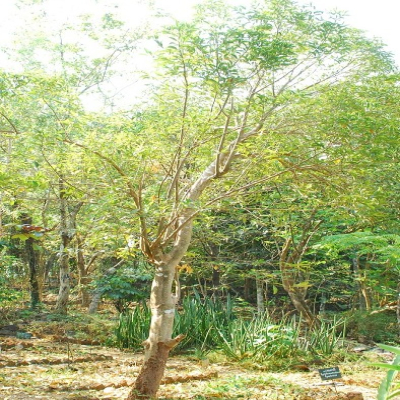Symplocos acuminata (Blume) Miq.
Synonyms : Symplocos cochinchinensis (Lour.) Moore subsp. laurina (Retz.) Nooteb
Family : Symplocaceae
Group : Uterine tonic, Anti hypertensive, Anti-arthritic/anti-rheumatic/anti-inflammatory
Parts Used : Bark
Vernacular Names :-
| English | : | Symplocos |
| Malayalam | : | Pachhotti |
| Hindi | : | Bholiya, Sodh |
| Sanskrit | : | Lodhrah |
| Kannada | : | Lodha |
| Tamil | : | Kambli-vetti |
| Telungu | : | Lodduga |
Distribution and habitat: Found throughout India.
Botany: A small evergreen tree up to 7 m in height with thin, smooth, light grey bark and white wood.
- Leaves: Simple, alternate, very thick, lanceolate, elliptic or oblong shortly acuminate at the apex, irregularly crenate or serrate.
- Flowers : Yellowish white, fragrant, in close clusters, in axillary spikes.
- Fruits : Globose, purple, ribbed drupes; seeds 1-3, testa thin.
- Bark : Greyish green to slight grey with patches of crustose lichens. The outer bark is thin and the inner greenish or light brown, the cut surface of the thick bark of a mature tree is reddish brown on drying; when broken, short fibre tips are seen.
Uses: Neurotonic, hypotensive, anti-inflammatory, treatment of arthritis, tumors, bronchitis, leucorrhoea, gonorrhea, ophthalmic, bleeding of gums and menorrhagia.
Propagation: Seed

